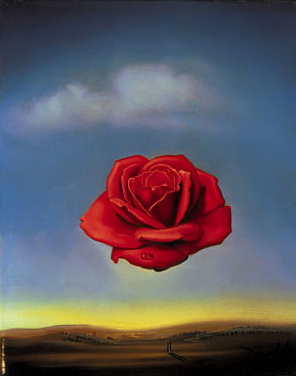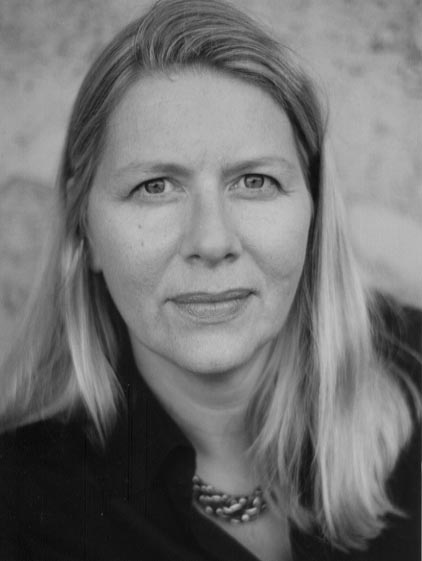
| Fiction | Essays | Poetry | The Ten | On Baseball | Chapbooks | In Memory |
|
writers on the creative life featuring Claire Tristram
1. When did you start writing? October 12, 1993, in the Raffles Hotel in Singapore. At the time I was a sales manager for a computer company, on something like a 9-country business trip and I was just sick of it. I was sitting in the lobby of this very swank hotel, and my meeting that afternoon had been canceled, and instead of preparing for the next meeting I wrote a story. I have no idea why. But something about the activity of writing really captivated me. After Singapore, I still had to fly to the Philippines, Indonesia, Malaysia and Korea before going home, and every time I got to a new country I filled in "writer" as my occupation on the immigration forms. By the time I came home the idea of becoming a writer seemed reasonable. I sold that first story, which I finished on the plane ride home, for $800. I thought that was great, so I quit my job and I've been writing for a living ever since. 2. What is your writing routine like? I don't have a routine. I become obsessed with a story that needs to be written and it takes up all of my time until it's done. It wakes me up in the middle of the night. Even when I'm washing dishes or sleeping or tying my shoes it feels like I'm inhabiting a character in my story. It feels as if everything that happens to me is related to what I'm writing and it all pours itself into the words I'm writing. It's like a fever that descends and doesn't go away until I'm finished. 3. Who are some of your favorite writers, and which writers have had the strongest influence on you? I don't write like my favorite writers, although I am inspired by them. They don't write like one another, either -- in fact you could say what makes them great is that they don't sound like anyone but themselves. My favorites include John Cheever, Anna Seghers, GŁnter Grass, Paul Bowles, and Flannery O'Connor. Anna Seghers may not be a familiar name to a lot of readers. Seghers was a Jew who fled Hitler's Germany and wrote her masterpiece, The Seventh Cross, while in exile in Mexico. It was a huge hit in the U.S. in the forties, and became a movie starring Spencer Tracy. But then Seghers, who was also a dedicated Communist, went back to live in East Germany after the war, and her literary career in the West became a casualty of the Cold War. The Seventh Cross has been re-issued in 2004 in English by David Godine. I can't recommend it enough. 4. Besides writing, what are you most passionate about in your life? Oh, God. I mean that literally instead of expletive-ly: I'm passionate about God. It's a difficult time to be religious when so many self-ascribed religious people are using God as a pretext for killing one another, but there you go. Despite being a radical leftie, I think that the teachings of Jesus are about the most perfect way of life ever devised. There's a lot of crap in the Bible that has nothing to do with what Jesus said, though, which kind of dilutes the message and has led to all kinds of mischief, including our current troubles with a man in the White House who apparently has Messianic delusions. 5. What kind of music do you enjoy, and do you find that music has an influence on your writing? I'm a fan of Prince Nico Mbarga. I'm also very fond of modern orchestral music, which I find extraordinarily moving, all the more so because no one listens to it. If I may take advantage of the interactive and connected nature of the medium we're using for this interview, here's 4-minute piece by Witold Lutoslawski, a 20th-century Polish composer, that breaks my heart every time I hear it. If listening to that clip gets anyone out there to go buy Witold's CDs, I will have made the world a better place. 6. Where are your favorite places to travel? I think of Tokyo as my second home. I think of Berlin as my third home. 7. Where do your best ideas come from, or, what creates your most inspired state? I'm not ducking the question here, but I have no idea. I should probably ponder this question more deeply so that I can create the circumstances for inspiration on a more regular basis. 8. Do you have any interesting vices that you'd care to share, and have they helped or hindered your writing? I am one step removed from being a teetotaller, so the vice I'm about to describe is an affectation rather than a true vice. About once every hundred pages I will go to the nicest hotel in my hometown of San Jose, the St. Frances, and order a martini at their piano bar. The martinis there come in a convenient 3-gallon size. It's best to go when there's a huge convention in town so the whole place is full of engineers yelling at one another over their drinks. I sit there with my laptop and drink and write, and it's a wonderful break from my usual obsessive grind in my tiny office, and usually what I produce is really good. No one ever talks to me. I'm really concentrating very deeply on the movement of my fingers, and on the discovery of the next sentence, in a hallucinogenic sort of way, because I'm drunk (people get that and leave me alone, I guess). I love the way the experience totally dampens my inner critic. For obvious reasons I limit this kind of activity, though. 9. Yeats said that the only things worth writing about are sex and death -- what would your list include? I think he was half right. 10. What's next for your writing?
I just started my third novel. At last I feel like I know what I'm doing.
|
| Home | Contributors | Past Issues | Search | Links | Guidelines | About Us |

|
|
|

|


